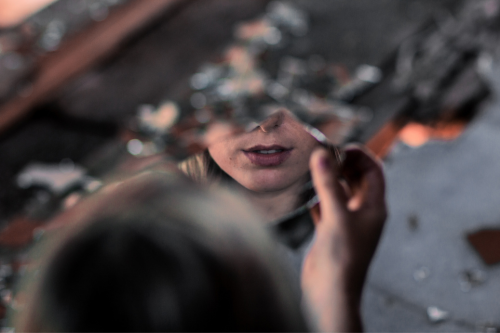
Hello there, fellow travelers … Today we are continuing our journey deep into the murky waters of codependent relationships. We’ve all heard the old adage, “love conquers all,” but when it comes to codependency, it can be more likely that ‘love is blind’. So, why do we stay in these dysfunctional, sometimes downright toxic relationships? Let’s unpack this murky mystery together.
- Love & Concern: Love is a powerful force, one of life’s greatest mysteries no less. Even when treated poorly, those feelings of love and concern can linger like an invisible thread that connects us. Many codependents grew up in environments where love and friction went hand in hand, leading us to believe that mistreatment or working hard for love is normal in relationships. We often see love as self-sacrifice, going above and beyond to take care of our partners, even at the expense of our own well-being. Our hidden and unspoken mantra becomes ‘love must be earned’.
- Blind Optimism: Ah, hope, the eternal optimist. Codependents are often fuelled by the belief that our partner can and will change for the better. We likely have some scraps of evidence that this is indeed possible, after all, NO partner is bad 100% of the time. We are the ones that tend towards seeing the good in others, and then we find ourselves in broken relationships because we are still hanging on tightly to their potential (sometimes despite contrary evidence that this potential only surfaces once in a blue moon). And besides, we’ve invested our time, energy, resources, and emotions into this person and who wants to throw in the towel on a relationship we’ve invested so much in?
- Low Self-Worth: Many codependents struggle with self-esteem issues, stemming from dysfunctional family dynamics in childhood. We may believe we deserve to be treated poorly or accept ‘breadcrumbs’ and lack the confidence to break free from toxic relationships. The role of caretaker or rescuer provides us with a sense of worth and purpose, even if it comes at a cost to our own agency and happiness.
- Guilt: Ah, guilt, the ultimate people-pleaser’s drug of choice. Codependents will go to great lengths to avoid conflict or displeasing others, often sacrificing our own needs in the process. Guilt weighs heavily on our shoulders, convincing us that leaving the relationship would be the “wrong” thing to do, even when it’s clearly not healthy. It is somehow easier to stay and be miserable than it is to rock the boat and cause pain for another.
- Fear: Fear comes in many forms for codependents, from fear of rejection to fear for our safety or the safety of our loved ones. We often feel trapped in the relationship, believing that no one else will ever love or want us or fearing that we cannot make things work alone. This fear, coupled with low self-esteem, can make the dysfunction seem preferable to being alone.
- Familiarity: When we come from childhoods where we did not experience secure attachment, connection and unconditional love, an imbalanced relationship can offer a warped sense of comfort, because it feels Familiarity feels somehow safe because it is what we know, even if that familiarity is not in fact safe or best for us.
- Dependency: Some codependents rely on partners for financial support or a place to live, further complicating our ability to leave the relationship. The grip of dependency can be hard to break, especially when coupled with feelings of fear and low self-esteem.
- Shame: Shame is a powerful force in codependent relationships, stemming from a lifetime of keeping secrets and stuffing down feelings. Codependents often feel ashamed of the situation and hesitate to seek help or speak out about struggles, fearing judgment, rejection or ‘I told you so’ from others. Shame distorts ‘there’s something wrong here’ into ‘there’s something wrong with me’.
- Manipulation: Narcissists, abusers, and addicts are masters of manipulation, using charm and charisma to keep their partners under their control. They prey on feelings of guilt, shame, and low self-esteem, making it difficult for codependents to break free from their influence. They speak directly to the part of you that feels ‘I’m not enough, there’s something wrong with me’.
- Overwhelm: Last but not least, overwhelm can cloud judgment and make it difficult to see clearly. Many codependents are in a constant state of stress and overwhelm, making it hard to concentrate or make rational decisions about their relationship. When we are in a particularly toxic relationship, we can become dysregulated and stuck in survival mode and find it hard to come back to ourselves without expert guidance and the right tools.
So, there you have it, folks. Codependent relationships are a tangled web of emotions and learned behaviour (often unconscious). While it may be difficult to understand why anyone would stay in such a dysfunctional situation, it’s important to approach the issue with self-compassion and empathy. This experience, if handled correctly with support and understanding, could totally change your life for the BETTER! Once we’ve tackled the thorny issue of codependency in an intimate relationship, we will reap the rewards in all of our relationships, in our families, at work and in life.
Please reach out if you’d like to further explore how codependency shows up in your life and how to transform it.

Salli Andrews
For a more personalized approach to your healing journey, book a free Clarity Call now. Our coaches are here to help you take your first steps towards healing. Check out our Resources or our Videos on YouTube.

